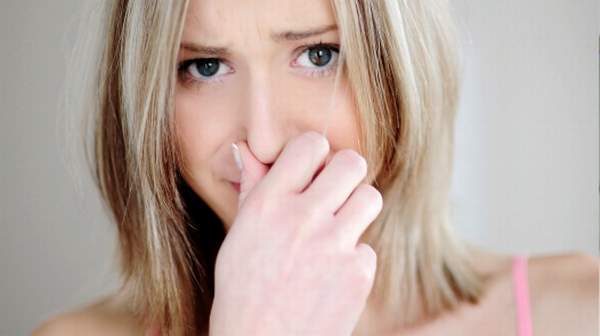What's in this article?
Vaginal odor is a very common problem that most women have to deal with at least once or twice in their life.
Vaginal odor can be due to a number of reasons, such as bacterial growth, yeast infections, poor hygiene, hormonal changes, and sexually transmitted diseases.
If the problem is due to infection, there may be symptoms like redness, itching, burning and irritation in the vaginal area. A fishy odor down there, in particular, is caused by bacterial vaginosis.
Causes of Vaginal odor
Vaginal odor may vary throughout your menstrual cycle and may be especially noticeable right after having sex. Normal sweating also can cause a vaginal odor. Though it may be tempting to douche or use a vaginal deodorant to decrease vaginal odor, these products may actually increase irritation and other vaginal symptoms.
Bacterial vaginosis an overgrowth of normally occurring vaginal bacteria is the most common vaginal infection that causes a vaginal odor. Trichomoniasis a sexually transmitted infection also can lead to vaginal odor. Chlamydia and gonorrhea infections usually don’t cause vaginal odors. Neither do yeast infections.
Generally, if you have vaginal odor without other vaginal symptoms, it’s unlikely that your vaginal odor is abnormal.
Common causes of abnormal vaginal odor include:
- Bacterial vaginosis
- Poor hygiene
- Retained or forgotten tampon
- Trichomoniasis
Less commonly, abnormal vaginal odor may result from:
- Rectovaginal fistula (an abnormal opening between the rectum and vagina that allows feces to leak into the vagina)
- Cervical cancer
- Vaginal cancer
Vaginal Odor Early Symptoms & Signs
Vaginal odor is typically from inflammation of the vaginal area. Inflammation of the vaginal area can occur because of poor hygiene but is often a result of infection in or around the vagina. A common infection that can cause vaginal odor is overgrowth of the normal vaginal bacteria to cause bacterial vaginosis. The sexually transmitted disease trichinosis can cause vaginal odor. Uncommon causes of vaginal odor include cancers and an abnormal passageway between the rectum and vagina (rectovaginal fistula).
Vaginal Home Treatment
A vaginal infection may clear up without treatment in 2 or 3 days.
- If you could be pregnant, do a home pregnancy test. Any pregnant woman with abnormal vaginal symptoms should talk with her doctor about her symptoms before considering using any home treatment measures or nonprescription medicines. For more information, see the topic Pregnancy-Related Problems.
- Avoid sex so that irritated vaginal tissues can heal.
- Do not scratch the vaginal area. Relieve itching with a cold water compress or cool baths. Warm baths may also relieve pain and itching.
- Make sure that the cause of your symptoms is not a forgotten tampon or other foreign object that needs to be removed.
- Wear loose-fitting, cotton clothing. Stay away from nylon and synthetics, because they hold heat and moisture close to the skin, which makes it easier for an infection to start. You may want to remove pajama bottoms or underwear when you sleep.
- Do not douche unless your doctor tells you to.
- If you have gone through menopause, try using a vaginal lubricant, such as Astroglide, to reduce irritation caused by having sex.
Vaginal yeast infections
If you have symptoms of a vaginal yeast infection and have been diagnosed and treated by your doctor for this condition in the past, you may want to try treating it at home using a nonprescription medicine, such as tioconazole (for example, Vagistat), clotrimazole (for example, Gyne-Lotrimin), or miconazole (for example, Monistat) to treat your symptoms.
Vaginal Yeast Infection: Symptoms, Treatments ←Read more
Causes shown here are commonly associated with this symptom. Work with your doctor or other health care professional for an accurate diagnosis.





